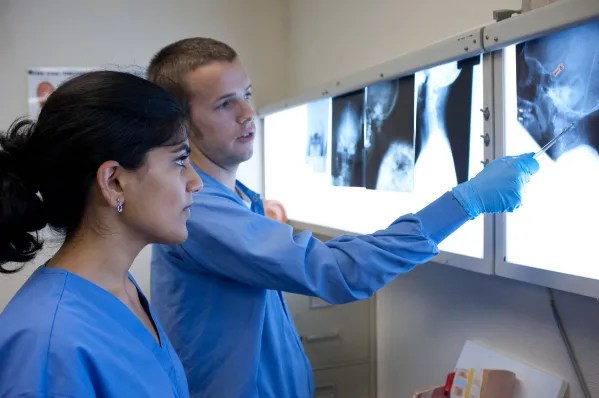
How to prepare for your medical residency
Find out everything you need to know to make the move from medical student to medical resident in our guide.
After four busy and long years, you’ve finally graduated medical school and you’re about to embark on your medical residency. Thrilled? Nervous? Maybe not quite sure how to prepare for your medical residency? Don’t worry, you’re not alone! Taking up your residency is an exciting, but nerve-racking step towards becoming a licensed doctor. It’s normal to feel a little unsure about what happens next and it’s not always clear what you need to do to prepare.
To help, we’ve pulled together our guide on everything you need to know on how to prepare for residency. Find out what to expect, what you should be aware of, and what you should make time for to help you feel fully prepared to make the move from medical student to a medical resident.
What is a medical residency?
Graduating from medical school is just the first step toward becoming a doctor. After graduation, as a medical student, you’re expected to take on a medical residency to gain more hands-on medical skills through real-world experience, training, and mentorship.
In the fourth year of medical school, most students will start applying for residencies and it’s normal to apply for several medical residency programs that focus on the specialties you’re most interested in. Students choose their preferred residencies that are then matched against residency program lists, and typically in late March (in what’s known as Match Day) students find out if and what residency program they’ve been matched to.
How long will my medical residency last?
Residencies typically take place in working hospitals and clinics and aim to provide in-depth training, knowledge, and skills within a specialized medical field.
Your first year of residency, sometimes called an internship, will usually be spent rotating around different medical specialties or different areas of one particular specialty. This is designed to give you a feel for different fields or areas so you can then focus the remainder of your residency – and career – on the specialty you’re most interested in.
Medical residencies differ in length depending on which area you opt to specialize in. For example, a residency in family practice would normally take three years, urology five years, and neurosurgery seven years.
How do I prepare for my medical residency?
Each residency will be different depending on the specialism you’re heading into, but we’ve outlined some general tips and advice that can help you prepare for any residency you’re taking on.
1. Find the perfect place to live
Finding a place to live that’s convenient, comfortable, and a relaxing and restful place to be after a long shift is really important. When choosing somewhere, consider a few different factors before you rush in:
- Have you seen the property in person?
Although it’s not always possible to view apartments in person, if you can make the trip it is definitely worth it. Seeing the apartment, and getting a feel for the surrounding area and the commute gives you the best chance of picking the right place.
- Will you be attending one hospital or rotating around multiple hospitals?
It’s generally a good idea to be close to the hospital you’re working at to save on commute time and cost, but if you’re rotating around different hospitals, try to pick accommodation that’s central to them all.
- Are there good necessities and services nearby?
What do you need in your everyday life? Is it grocery stores, gyms, bars, bakeries, or coffee shops? Make sure you have all the necessities within walking distance so you’re not wasting time traveling after work or on days off to get your essentials.
- Can you afford it?
Make sure you have a good idea of your accommodation budget before you lock yourself into a rental contract you can’t afford. You can apply for residency and relocation loans to cover some of your relocation costs, but make sure you understand what you’re signing up for, and that you can afford the personal loan payments and associated interest and fees.
2. Manage your time well
Remember that when you start your residency, whether you’re moving to a new town/city or not, you’ll be working a lot of extra hours and have limited time for holidays, family, and friends. Most residents work six days a week, put in extra study time, and might only get two to four weeks of vacation each year.
Make sure that you manage your time well and make space for fun things and quality personal time before your residency starts. Plan ahead and book trips to see family, nights out with friends, or holiday travels you might not get much chance to do later. You’ll really appreciate the special time you have with your family and friends before you get too busy
3. Practice self-care
Although time with family and friends is important, make sure to take time for yourself too, and practice some good self-care before this looming busy period in your life.
Make sure you’re physically and mentally ready to take on the demands of residency. Schedule any necessary doctor’s appointments, get a physical, see your physio, therapist, or counselor, or get any physical niggles taken care of in good time.
Taking time out to relax is also a good idea. Whether it’s a spa day, meditation, a yoga retreat, space to read a good book or take your dog out for a country walk, it’s a good idea to build in some time to unwind and look after your mental well-being too.
4. Don’t panic
Transitioning into medical residency can be daunting but it’s best approached with a relaxed attitude and a clear head. It’s easy to put yourself under pressure and try to get ahead with masses of reading and studying before you start your residency. But remember, most of what you need to know you’ll have started to learn on clinical rotation, and you’ll continue to learn on the job. You’ll have plenty of time to study as a resident too.
Give yourself some time off, relax, have fun, and make the most of the time you have by celebrating the end of medical school (it’s a big achievement!) and enjoying time on your own, with family or friends.
Saba University School of Medicine’s medical residency placements
Saba University School of Medicine has a strong track record of its medicine graduates earning great American and Canadian residency placements, with an impressive 94% residency attainment rate (2019-2021) . Find out more about the residency placement success for Saba University graduates.
To take your next step towards becoming an intern or resident, find out more about our medical program and what we look for in Saba University applicants. For any questions on how to apply, join one of our events or feel free to contact our team, who is more than happy to help you on your journey to becoming a successful medical professional.

For prospective students
Saba is committed to supporting prospective students with any questions or queries throughout the application process. Please see the following links for detailed information about each topic:
If the information you are seeking is not provided here, please get in contact by contacting via WhatsApp here.
Get in touch for more information